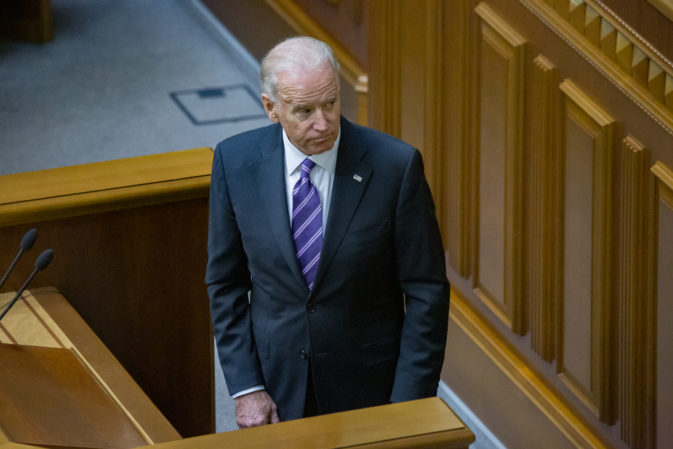Protecting Small Businesses from Biden’s Regulatory Onslaught

With Congress divided, President Biden will increasingly try to implement his agenda through the pen and the phone. “Using executive orders to get stuff done is going to be more important than ever,” observed Jim Manley, former chief spokesperson for the late Senate majority leader Harry Reid.
Over the last couple of months alone, the Biden administration has issued and proposed a slew of burdensome regulations, including ones on shareholder voting, methane gas, heavy-duty engine emissions, ESG retirement accounts, fine-particulate air quality, light-bulb efficiency, climate-impact disclosures, waters of the U.S., hydrofluorocarbons, independent contractors, and “healthy” food labeling.
That list is just a recent sampling from a presidency that still has nearly two more years left, and it doesn’t include most of the regulations issued in the first two years.
The biggest victims of this regulatory onslaught are small businesses, which are disproportionately affected because they lack the economies of scale, preferential purchasing agreements, and profit margins of big companies. Corporations often also have the lobbying capacity to gain carve-outs or exemptions from regulations, further tilting the deck against small businesses. Reports indicate that regulations cost small businesses dramatically more per employee than they cost their big-business competitors.
Given the well-documented vital role small businesses have on the U.S. economy, Biden’s regulations threaten to forestall the nation’s economic recovery and return to 2019-level shared prosperity.
To stop this regulatory gusher, the new Congress must embrace a radical and revolutionary regulatory rethink. Mere tinkering around the edges of the regulatory process has proven insufficient to protect small businesses. What’s needed is legislation to exempt small businesses from new federal rules unless there is a compelling reason to the contrary.
Fortunately, the groundwork for such an ambitious plan is already laid. The Regulatory Flexibility Act of 1980 is a little-known federal law that requires some federal agencies to assess the implications of their regulations on small businesses and consider less burdensome alternatives. The law saves small businesses $3.3 billion in 2021. More than 40 state governments have adopted similar legislation at the state level.
While good in theory, the RFA provides small businesses little protection in practice. Agencies regularly avoid its requirements by claiming that their rules will not have a significant economic impact on small businesses. Agencies’ wide latitude in making this claim is aided by the lack of a statutory definition for “significant economic impact” and by their ability to avoid considering indirect consequences, no matter how burdensome.
One notable aspect of the RFA — a requirement that federal agencies review and revise regulations that are duplicative, no longer needed, or overly burdensome — has been almost completely ignored. Even after the Small Business Regulatory Enforcement Fairness Act of 1996 strengthened the RFA by, among other things, giving courts judicial review over agency compliance, the law still hasn’t been able to spare small businesses from ill-conceived mandates.
For instance, it hasn’t stopped the Biden administration’s recent proposed rules on independent contractors and “joint employers,” even though these mandates will significantly hurt small businesses throughout the economy and across the nation.
To truly protect small businesses from overregulation, the new Congress should bolster the RFA to exempt small businesses from all new federal-agency regulations unless there’s a clear, overriding, and compelling interest.
A robust RFA can prevent proposed regulations that negatively affect small businesses just as the Endangered Species Act currently prevents proposed developments that negatively affect the natural environment. Expanding the RFA as envisioned could act as the flip side of the ESA coin for small businesses.
Presumptively excluding small businesses from new federal regulations is a key aspect of Job Creators Network’s Small Business Prosperity Plan, developed in partnership with former House speaker Newt Gingrich. The new Congress can use this plan as a playbook to bring small businesses and the American economy back. Stopping the expanding regulatory attack on small businesses by prioritizing this exemption provision should be at the top of every legislator’s policy agenda.





